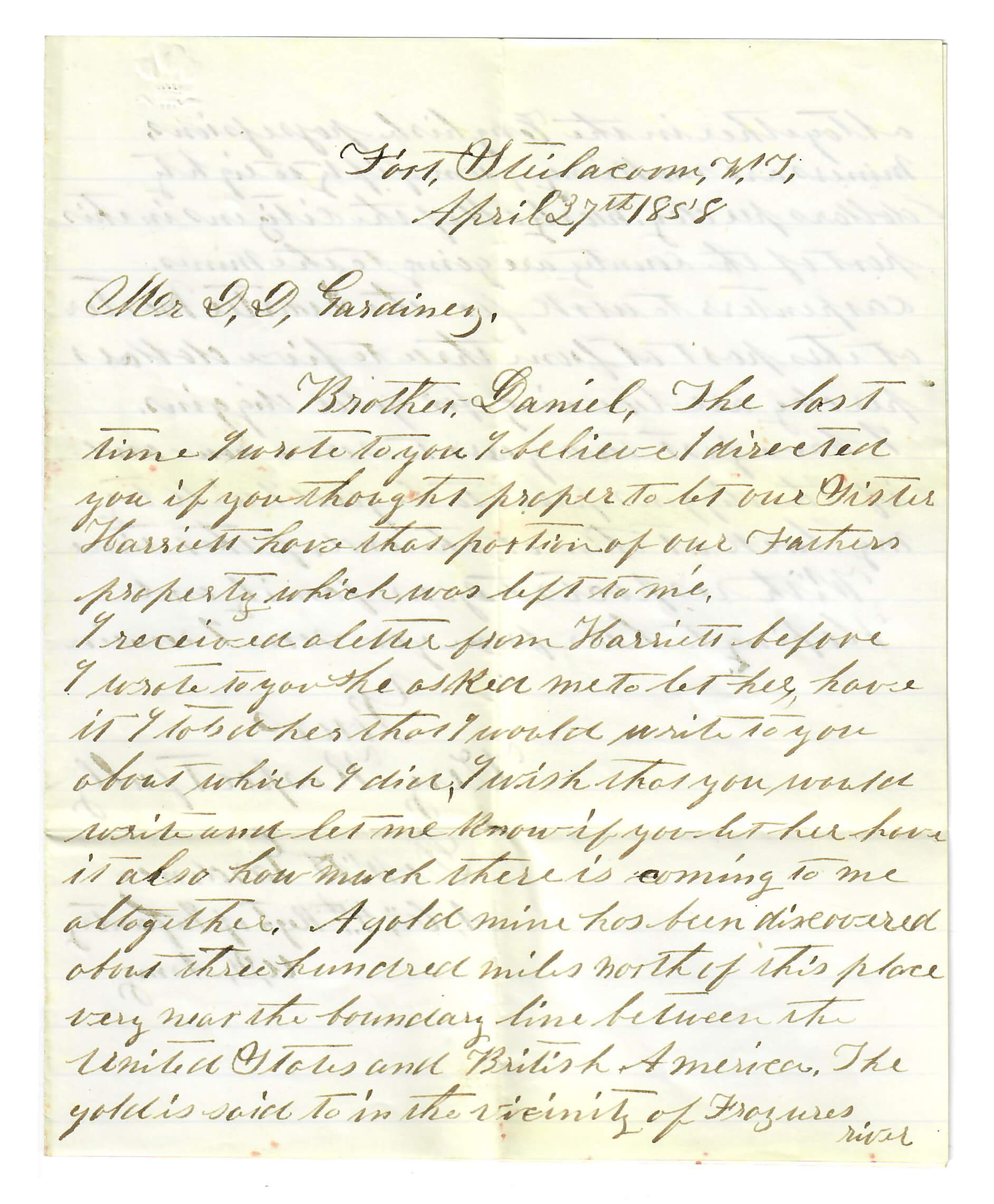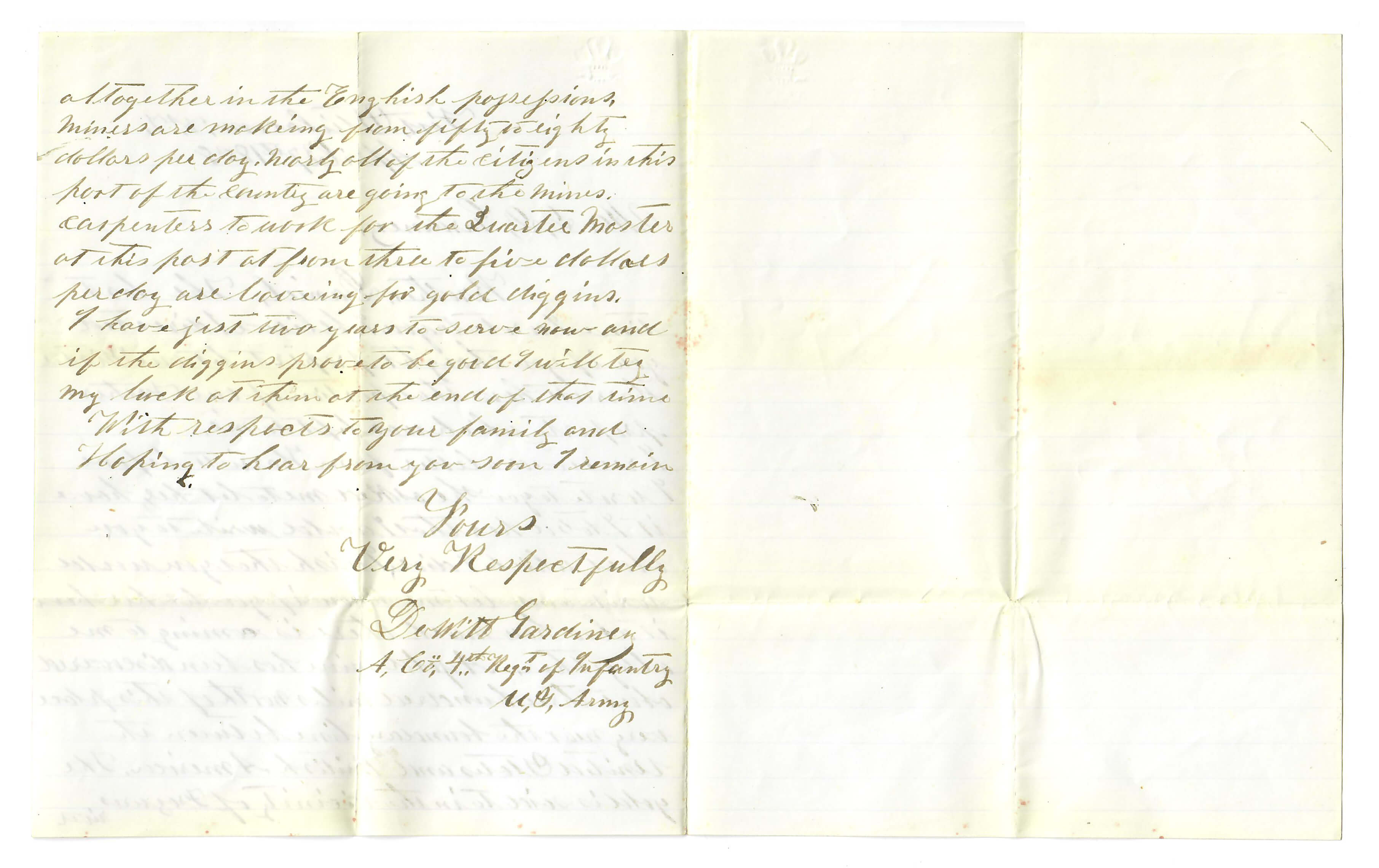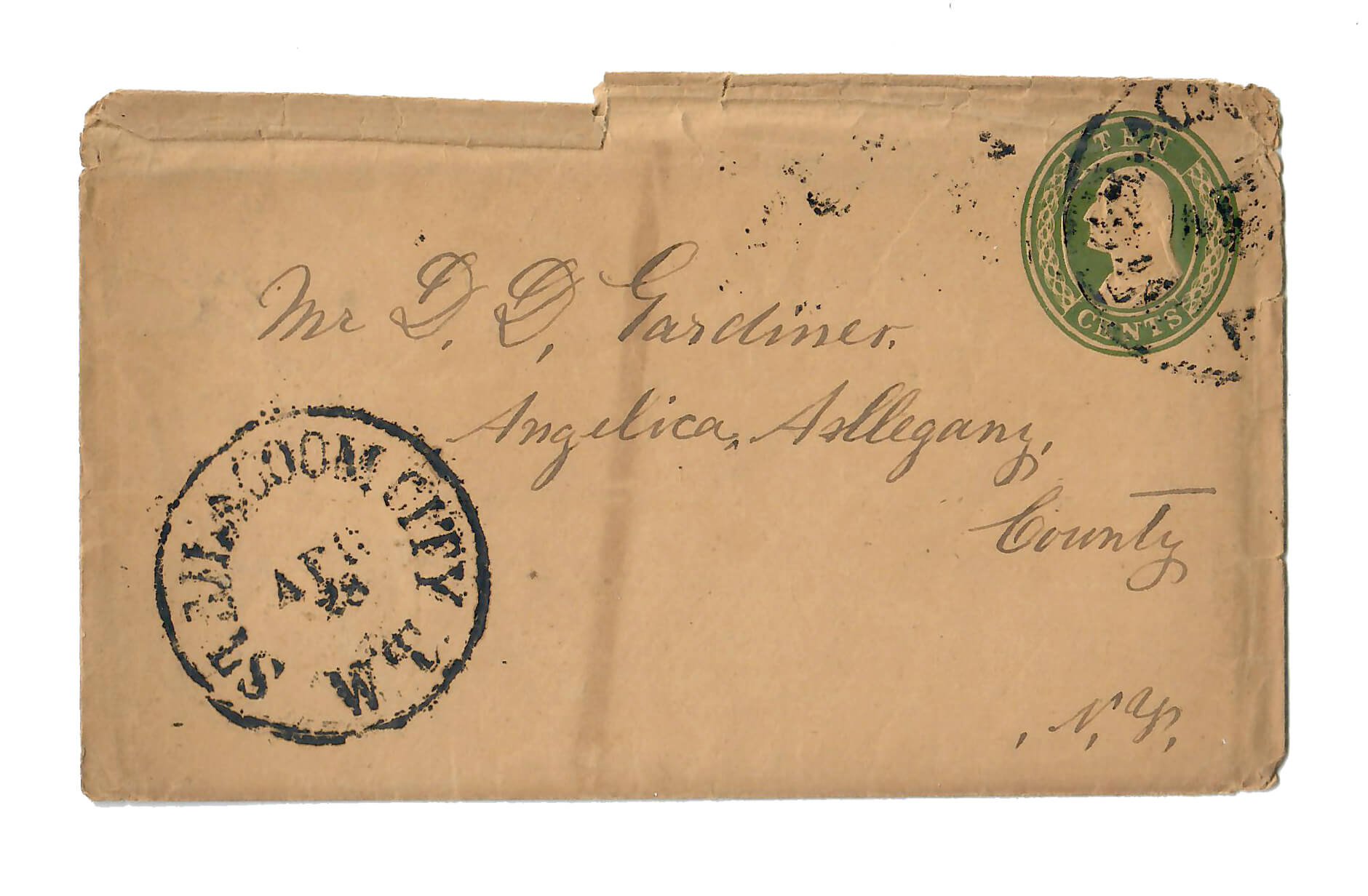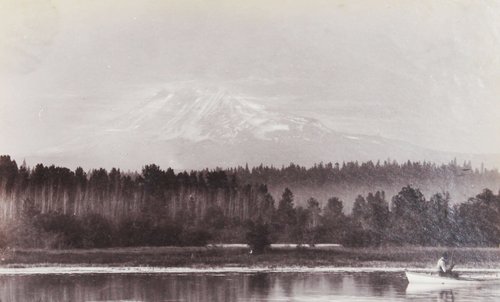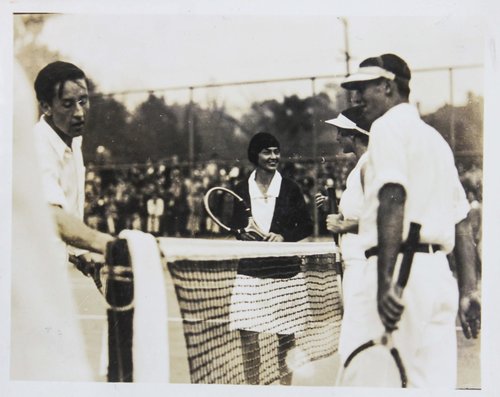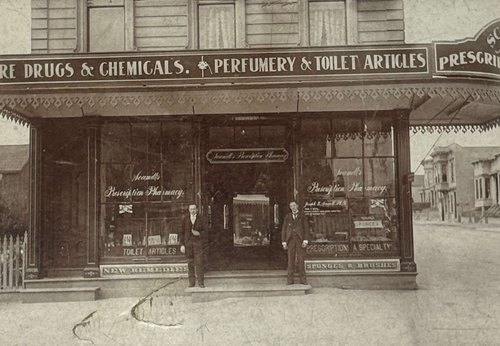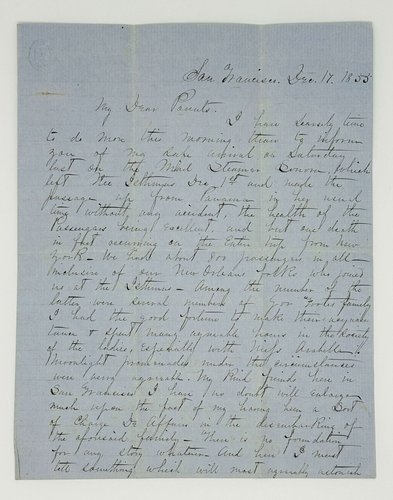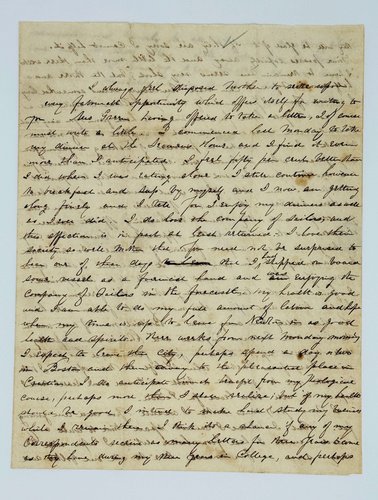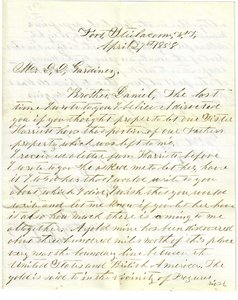
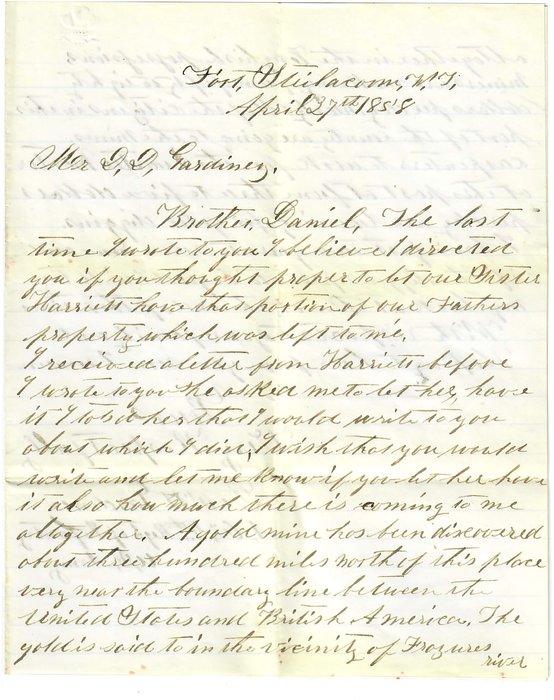
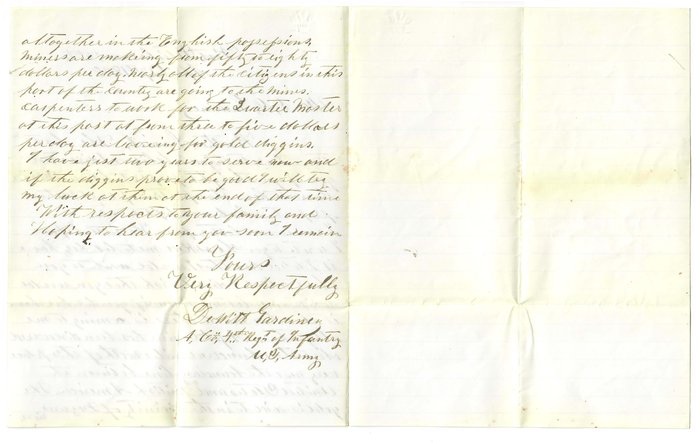
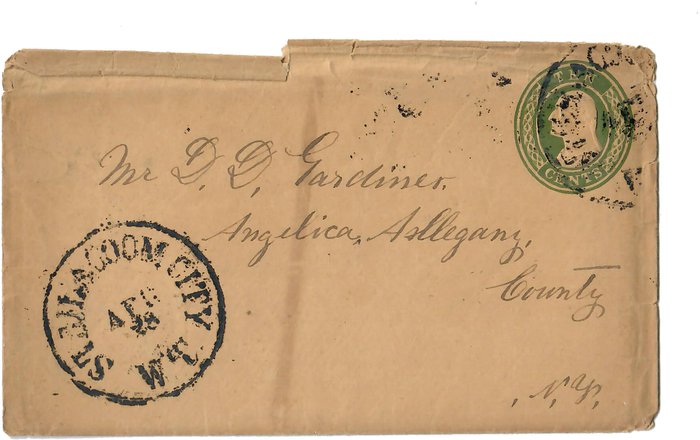
#MB2
April 1858
Octavo Bifolium (ca. 18 x 14.5 cm). 2 pp. of text. Brown ink on yellowish wove paper. The letter includes the original green ten-cent entire (U7?) envelope with a black circular date stamp of "Steilacoom City, W. T. April 28,".
The address "Mr. D. D. Gardiner/Angelica, Allegany County, N. Y." is written on the front side and "Washington Territory" on the reverse. Fold marks, but overall a very good letter, written in a legible hand.
Historically important original autograph manuscript letter by a potential gold prospector from Washington territory, offering one of the earliest documented reactions to the discovery of gold near Fraser River in British Columbia, Canada.
The Fraser River Gold Rush began in 1858 when James Douglas discovered gold in the vicinity of Fraser River and sent 800 ounces to the San Francisco Mint. News of the gold discovery quickly spread, attracting a massive influx of prospectors to British Columbia. The gold rush continued until the early 1860s, when the easily accessible gold deposits started to dwindle.
The author, DeWitt Gardiner (ca. 1835-1897), was born in Allegany County, New York, in 1835 and served in the 4th Infantry Regiment of the U.S. Army at Fort Steilacoom. The fort, established in 1849 after an Indian attack on Fort Nisqually, transitioned from artillery to infantry in 1853. During the letter's writing, the fort was undergoing construction of permanent structures under the 1857/1858 project, led by the post quartermaster who hired carpenters mentioned in Gardiner's letter.
The text, written on 27 April 1858, is addressed to Daniel Gardiner, one of DeWitt's seven siblings, who later became a Captain in the New York State Militia. In the letter, the author enthusiastically reacts to the discovery of gold near "Frazers River." Interestingly, DeWitt exposes the stark wage discrepancy between carpenters involved in the Fort Steilacoom renovation ($3-$4 per day) and prospectors in English possessions ($50-$80 per day), inspiring his intention to join the gold rush. He also discusses the massive wave of migration to British Columbia, noting that "nearly all of the citizens in this part of the country are going to the mines." In the rest of the text, the author touches upon private matters and inquiries the addressee about a property settlement with their sister Harriet. Overall, a historically important original letter, providing one of the earliest documented reactions to the discovery of gold near the Fraser River.
Despite his intentions to join the gold rush, DeWitt later served in the Civil War from 1861 to 1865, seemingly giving up on his intentions to join the prospectors.
The text of the letter:
“Brother Daniel, The last time I wrote to you I believe I directed you if you thought proper to let our sister Harriett have that portion of our Father's property which was left to me.
I received a letter from Harriett before I wrote to you, she asked me to let her have it. I told her that I would write to you about which I did, I wish that you would write and let me know if you let her have is also how much there is coming to me altogether. A gold mine has been discovered about three hundred miles north of this place, very near the boundary line between the United States and British America. The gold is said to [be] in the vicinity of Frazers River, altogether in the English possessions. Miners are making from fifty to eighty dollars per day. Nearly all of the citizens in this part of the country are leaving for gold diggings. I have just two years to serve now and if the diggings prove to be good, I will try my luck at them at the end of that time. With respects to your family and hoping to hear from you soon, I remain Yours Very Respectfully, DeWitt Gardiner/ A Co., 4th Reg't of Infantry U.S. Army."

